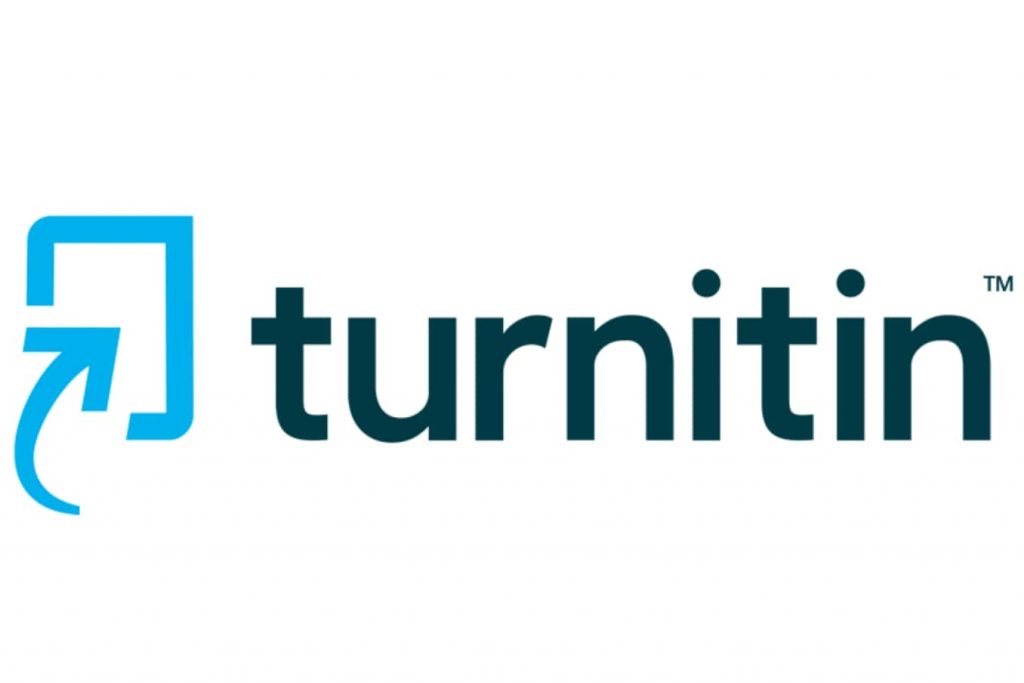Abstract
Globally, the consumption of sugar-sweetened beverages (SSBs) has increased by nearly 16%. The imposition of taxes on sugary drinks is considered one of the strategic measures to control diseases associated with their consumption. This study aims to conduct a meta-analysis of the correlation between SSB taxation and health issues. The systematic review and meta-analysis were carried out following the Preferred Reporting Items for Systematic Reviews and MetaAnalyses (PRISMA) guidelines. Literature from various countries published since January 1, 2014, was collected using databases such as Google Scholar, PubMed, and Science Direct. The meta-analysis process was performed using a funnel plot. A total of 44 articles meeting the criteria and relevance were selected for the meta-analysis. The highest implementation rate of SSB taxation was 60%, while the lowest was 7%, with an average tax rate of 20% across 20 states. The results of the meta-analysis demonstrated a significant positive relationship between SSB taxation and the prevalence of overweight (0.17, 95% CI: 0.09 to 0.25), obesity (0.23, 95% CI: 0.10 to 0.35), diabetes (0.16, 95% CI: 0.01 to 0.31), cancer (0.12, 95% CI: -0.06 to 0.28), heart disease (0.12, 95% CI: -0.03 to 0.26), and dental caries (0.37, 95% CI: -0.05 to 0.68). However, no significant association was found between SSB taxation and stroke prevalence (0.02, 95% CI: 0.01 to 0.04). This study highlights a significant positive association between the imposition of taxes on sugary beverages and the high prevalence of health problems such as overweight, obesity, diabetes, cancer, heart disease, and dental caries, while the relationship with stroke prevalence was insignificant. The study recommends policymakers formulate and enhance the effectiveness of SSB taxation policies.
References
Action on Sugar, 2014. Sugar-sweetened beverages. Available at: https://www.actiononsugar.org/surveys/2014/sugar-sweetened-beverages/ [Accessed December 18, 2023].
Andreyeva, T. et al., 2022. Outcomes Following Taxation of Sugar-Sweetened Beverages: A Systematic Review and Meta-analysis. JAMA network open, 5(6), p.e2215276.
Batis, C., Castellanos-Gutiérrez, A., Sánchez-Pimienta, T. G., Reyes-García, A., Colchero, M. A., Basto-Abreu, A., ... & Rivera, J. A. (2023). Comparison of dietary intake before vs after taxes on sugar-sweetened beverages and nonessential energy-dense foods in Mexico, 2012 to 2018. JAMA Network Open, 6(7), e2325191-e2325191.
Basto-Abreu, A., López-Olmedo, N., Rojas-Martínez, R., Aguilar-Salinas, C. A., De la Cruz-Góngora, V., Rivera-Dommarco, J., ... & Barrientos-Gutiérrez, T. (2021). Prevalence of diabetes and glycemic control in Mexico: national results from 2018 and 2020. salud pública de méxico, 63(6), 725-733.
Bowser, D., Canning, D. & Okunogbe, A., 2014. The impact of tobacco taxes on mortality in the USA, 1970–2005. Tobacco Control, p.tobaccocontrol-2014-051666.
Briggs, A. D., Mytton, O. T., Kehlbacher, A., Tiffin, R., Rayner, M., & Scarborough, P. (2013). Overall and income specific effect on prevalence of overweight and obesity of 20% sugar sweetened drink tax in UK: econometric and comparative risk assessment modelling study. Bmj, 347.
Briggs, A. D., Wolstenholme, J., Blakely, T., & Scarborough, P. (2016). Choosing an epidemiological model structure for the economic evaluation of non-communicable disease public health interventions. Population health metrics, 14, 1-12.
Basu, S., Vellakkal, S., Agrawal, S., Stuckler, D., Popkin, B., & Ebrahim, S. (2014). Averting obesity and type 2 diabetes in India through sugar-sweetened beverage taxation: an economic-epidemiologic modeling study. PLoS medicine, 11(1), e1001582.
Briggs, A. D., Mytton, O. T., Kehlbacher, A., Tiffin, R., Rayner, M., & Scarborough, P. (2013). Overall and income specific effect on prevalence of overweight and obesity of 20% sugar sweetened drink tax in UK: econometric and comparative risk assessment modelling study. Bmj, 347.
Chaloupka, F.J., Powell, L.M. & Warner, K.E., 2019. The Use of Excise Taxes to Reduce Tobacco, Alcohol, and Sugary Beverage Consumption. Annual Review of Public Health, 40(1), pp.187–201.
Claudy, M. et al., 2020. Are Sugar-Sweetened Beverage Taxes Effective? Reviewing the Evidence Through a Marketing Systems Lens. Journal of Public Policy & Marketing, 40(3), pp.403–418. Available at: https://doi.org/10.1177/0743915620965153.
Dharmasena, S., & Capps Jr, O. (2012). Intended and unintended consequences of a proposed national tax on sugar‐sweetened beverages to combat the US obesity problem. Health economics, 21(6), 669-694.
Emmert-Fees, K. M., Amies-Cull, B., Wawro, N., Linseisen, J., Staudigel, M., Peters, A., ... & Laxy, M. (2023). Projected health and economic impacts of sugar-sweetened beverage taxation in Germany: A cross-validation modelling study. Plos Medicine, 20(11), e1004311.
Eykelenboom, M., Van Stralen, M. M., Olthof, M. R., Renders, C. M., & Steenhuis, I. H. (2021). Public acceptability of a sugar-sweetened beverage tax and its associated factors in the Netherlands. Public Health Nutrition, 24(8), 2354-2364.
Falbe, J. et al., 2020. Higher Sugar-Sweetened Beverage Retail Prices After Excise Taxes in Oakland and San Francisco. American Journal of Public Health, 110(7), pp.1017–1023.
Ferretti, F. & Mariani, M., 2019. Sugar-sweetened beverage affordability and the prevalence of overweight and obesity in a cross section of countries. Globalization and health, 15(1), pp.1–14.
Flexner, N. et al., 2023. How Many Diet-Related Non-Communicable Disease Deaths Could Be Averted or Delayed If Canadians Reduced Their Consumption of Calories Derived from Free Sugars Intake? A Macrosimulation Modeling Study. Nutrients, 15(8), p.1835.
Fletcher, J. M., Frisvold, D. E., & Tefft, N. (2010). The effects of soft drink taxes on child and adolescent consumption and weight outcomes. Journal of Public Economics, 94(11-12), 967-974.
Finkelstei Jalloun,, E. A., Zhen, C., Bilger, M., Nonnemaker, J., Farooqui, A. M., & Todd, J. E. (2013). Implications of a sugar-sweetened beverage (SSB) tax when substitutions to non-beverage items are considered. Journal of Health Economics, 32(1), 219-239.
Goiana-da-Silva, F., Cruz-e-Silva, D., Bartlett, O., Vasconcelos, J., Morais Nunes, A., Ashrafian, H., ... & Darzi, A. (2020). The ethics of taxing sugar-sweetened beverages to improve public health. Frontiers in public health, 8, 110.
Huse, Oliver, Lobstein, Tim, Jewell, Jo, Zahr, Sarah, Williams, D’Arcy. et al. (2023). Healthy weight in childhood. Bulletin of the World Health Organization, 101 (3), 226 - 228. World Health Organization. http://dx.doi.org/10.2471/BLT.22.289049
Hangoma, P., Bulawayo, M., Chewe, M., Stacey, N., Downey, L., Chalkidou, K., ... & Surgey, G. (2020). The potential health and revenue effects of a tax on sugar sweetened beverages in Zambia. BMJ Global Health, 5(4), e001968.
Jalloun, R. A., & Qurban, M. A. (2022). The impact of taxes on soft drinks on adult consumption and weight outcomes in Medina, Saudi Arabia. Human Nutrition & Metabolism, 27, 200139.
Jevdjevic, M., Trescher, A. L., Rovers, M., & Listl, S. (2019). The caries-related cost and effects of a tax on sugar-sweetened beverages. Public health, 169, 125-132.
Kao, K. E., Jones, A. C., Ohinmaa, A., & Paulden, M. (2020). The health and financial impacts of a sugary drink tax across different income groups in Canada. Economics & Human Biology, 38, 100869.
Liu, Siyuan, Xuanli Chen, Jiadong Chu, Wei Hu, Na Sun, Qida He, Zhaolong Feng, Tongxing Li, Qiang Han, Yueping Shen, (2022). Associations of ultra-processed food consumption with cardiovascular disease and all-cause mortality: UK Biobank, European Journal of Public Health, Volume 32, Issue 5, October, Pages 779–785
Liu, Siyuan, Xuanli Chen , Jiadong Chu , Wei Hu , Na Sun , Qida He , Zhaolong Feng , Tongxing Li , Qiang Han , Yueping Shen. (2023). Insights into the relation between multi-scale structure and in-vitro digestibility of type 3 resistant starches prepared from wrinkled pea starches. European Journal of Public Health, Volume 32, Issue 5, October 2022, Pages 779–785 https://doi.org/10.1093/eurpub/ckac104
Long, M.W. et al., 2015. Cost Effectiveness of a Sugar-Sweetened Beverage Excise Tax in the U.S. American Journal of Preventive Medicine, 49(1), pp.112–123.
Manyema, M., Veerman, L. J., Tugendhaft, A., Labadarios, D., & Hofman, K. J. (2016). Modelling the potential impact of a sugar-sweetened beverage tax on stroke mortality, costs and health-adjusted life years in South Africa. BMC Public Health, 16, 1-10.
Madsen, K.A., Krieger, J. & Morales, X., 2019. Sugar-Sweetened Beverage Taxes: Emerging Evidence on a New Public Health Policy. JAMA, 321(18), pp.1777–1779.
Malik, V.S. & Hu, F.B., 2022. The role of sugar-sweetened beverages in the global epidemics of obesity and chronic diseases. Nature Reviews Endocrinology, 18(4), pp.205–218.
Manyema, M., Veerman, L. J., Chola, L., Tugendhaft, A., Sartorius, B., Labadarios, D., & Hofman, K. J. (2014). The potential impact of a 20% tax on sugar-sweetened beverages on obesity in South African adults: a mathematical model. PloS one, 9(8), e105287.
Nguyen, D. T., Hoang, M. V., Dao, S., Do, P. H., Nguyen, Q. D., Jewell, J., ... & O’Neill, C. (2023). Estimating the health impacts of sugar-sweetened beverage tax for informing policy decisions about the obesity burden in Vietnam. PLoS One, 18(4), e0274928.
Nucci, L. B., Rinaldi, A. E. M., Ramos, A. F., Itria, A., & Enes, C. C. (2022). Impact of a reduction in sugar-sweetened beverage consumption on the burden of type 2 diabetes in Brazil: a modeling study. Diabetes Research and Clinical Practice, 192, 110087.
Phonsuk, P., Vongmongkol, V., Ponguttha, S., Suphanchaimat, R., Rojroongwasinkul, N., & Swinburn, B. A. (2021). Impacts of a sugar sweetened beverage tax on body mass index and obesity in Thailand: A modelling study. PLoS One, 16(4), e0250841.
Popkin, B.M. & Ng, S.W., 2021. Sugar-sweetened beverage taxes: Lessons to date and the future of taxation. PLoS medicine, 18(1), p.e1003412.
Purohit, B.M. et al., 2023. Sugar-sweetened beverage consumption and socioeconomic status: A systematic review and meta-analysis. Nutrition and Health, 29(3), pp.465–477.
Ruff, R. R., & Zhen, C. (2015). Estimating the effects of a calorie-based sugar-sweetened beverage tax on weight and obesity in New York City adults using dynamic loss models. Annals of epidemiology, 25(5), 350-357.
Schwendicke, F., & Stolpe, M. (2017). Taxing sugar-sweetened beverages: impact on overweight and obesity in Germany. BMC public health, 17, 1-8.
Sturm, R., Powell, L. M., Chriqui, J. F., & Chaloupka, F. J. (2010). Soda taxes, soft drink consumption, and children’s body mass index. Health Affairs, 29(5), 1052-1058.
Sánchez-Romero, L. M., Penko, J., Coxson, P. G., Fernández, A., Mason, A., Moran, A. E., ... & Bibbins-Domingo, K. (2016). Projected impact of Mexico’s sugar-sweetened beverage tax policy on diabetes and cardiovascular disease: a modeling study. PLoS medicine, 13(11), e1002158.
Schwendicke, F., & Stolpe, M. (2017). Taxing sugar-sweetened beverages: impact on overweight and obesity in Germany. BMC public health, 17, 1-8.
Sowa, P. M., Keller, E., Stormon, N., Lalloo, R., & Ford, P. J. (2019). The impact of a sugar-sweetened beverages tax on oral health and costs of dental care in Australia. European Journal of Public Health, 29(1), 173-177.
TuftsNow, 2023. Globally, Consumption of Sugary Drinks Increased at Least 16% Since 1990. Available at: https://now.tufts.edu/2023/10/03/globally-consumption-sugary-drinks-increased-least-16-1990 [Accessed December 18, 2023].
Urwannachotima, N., Hanvoravongchai, P., Ansah, J. P., Prasertsom, P., & Koh, V. R. Y. (2020). Impact of sugar-sweetened beverage tax on dental caries: a simulation analysis. BMC oral health, 20, 1-12.
Veerman JL, Sacks G, Antonopoulos N, Martin J (2016) The Impact of a Tax on Sugar-Sweetened Beverages on Health and Health Care Costs: A Modelling Study. PLoS ONE 11(4): e0151460. https://doi.org/10.1371/journal.pone.0151460
Vecino-Ortiz, A. I., Jafri, A., & Hyder, A. A. (2018). Effective interventions for unintentional injuries: a systematic review and mortality impact assessment among the poorest billion. The Lancet Global Health, 6(5), e523-e534.
Victoria, M., Zhu, K., Brown, T., Andresen, G. B., & Greiner, M. (2020). Early decarbonisation of the European energy system pays off. Nature communications, 11(1), 6223.
Wang, Y. C., Coxson, P., Shen, Y. M., Goldman, L., & Bibbins-Domingo, K. (2012). A penny-per-ounce tax on sugar-sweetened beverages would cut health and cost burdens of diabetes. Health Affairs, 31(1), 199-207.
World Bank, 2023. Global SSB Tax Database. Available at: https://ssbtax.worldbank.org [Accessed December 18, 2023].
Bahasa Abstract
Secara global, konsumsi minuman berpemanis dalam kemasan (MBDK) mengalami kenaikan hampir 16%. Pengenaan cukai pada minuman berpemanis dianggap sebagai salah satu langkah strategis pengendalian penyakit akibat konsumsi gula. Penelitian ini bertujuan untuk melakukan meta-analisis keterkaitan antara penerapan cukai MBDK dan permasalahan kesehatan. Tinjauan sistematis dan meta-analisis ini dilakukan sesuai dengan pedoman pelaporan untuk Tinjauan Sistematis dan Meta-analisis (PRISMA). Literatur yang digunakan dicari dari berbagai negara sejak 1 Januari 2014, dengan menggunakan database Google Scholar, PubMed, dan Science Direct. Proses meta-analisis dilakukan menggunakan funnel plot. Sebanyak 44 artikel yang memenuhi kriteria dan relevansi dipilih untuk meta-analisis. Persentase tertinggi penerapan cukai MBDK adalah 60%, sedangkan yang terendah 7%, dengan rerata cukai yang diterapkan di 20 negara bagian mencapai 20%. Hasil meta-analisis menunjukkan adanya hubungan positif yang signifikan antara penerapan cukai MBDK dan prevalensi overweight (0,17 dengan 95% CI 0,09 hingga 0,25), obesitas (0,23 dengan 95% CI 0,10 hingga 0,35), diabetes (0,16 dengan 95% CI 0,01 hingga 0,31), kanker (0,12 dengan 95% CI -0,06 hingga 0,28), penyakit jantung (0,12 dengan 95% CI -0,03 hingga 0,26), dan karies gigi (0,37 dengan 95% CI -0,05 hingga 0,68). Sementara itu, tidak ditemukan hubungan signifikan antara cukai MBDK dan prevalensi stroke (0,02 dengan 95% CI 0,01 hingga 0,04). Penelitian ini menunjukkan adanya hubungan positif yang signifikan antara pengenaan cukai MBDK dan tingginya prevalensi masalah kesehatan seperti overweight, obesitas, diabetes, kanker, penyakit jantung, dan karies gigi, sementara hubungan dengan prevalensi stroke tidak signifikan. Penelitian ini menyarankan kepada pembuat kebijakan untuk merumuskan dan meningkatkan efektivitas kebijakan cukai MBDK.
Recommended Citation
Hartono, Risky Kusuma and Aryani Susanti, Fitria
(2025)
"Kebijakan Cukai Konsumsi Minuman Berpemanis dalam Kemasan (MBDK) dalam Mengendalikan Masalah Kesehatan: Tinjauan Literatur Sistematis dan Meta Analisis,"
Jurnal Ekonomi Kesehatan Indonesia: Vol. 10:
No.
1, Article 5.
DOI: 10.7454/eki.v10i1.1141
Available at:
https://scholarhub.ui.ac.id/eki/vol10/iss1/5












